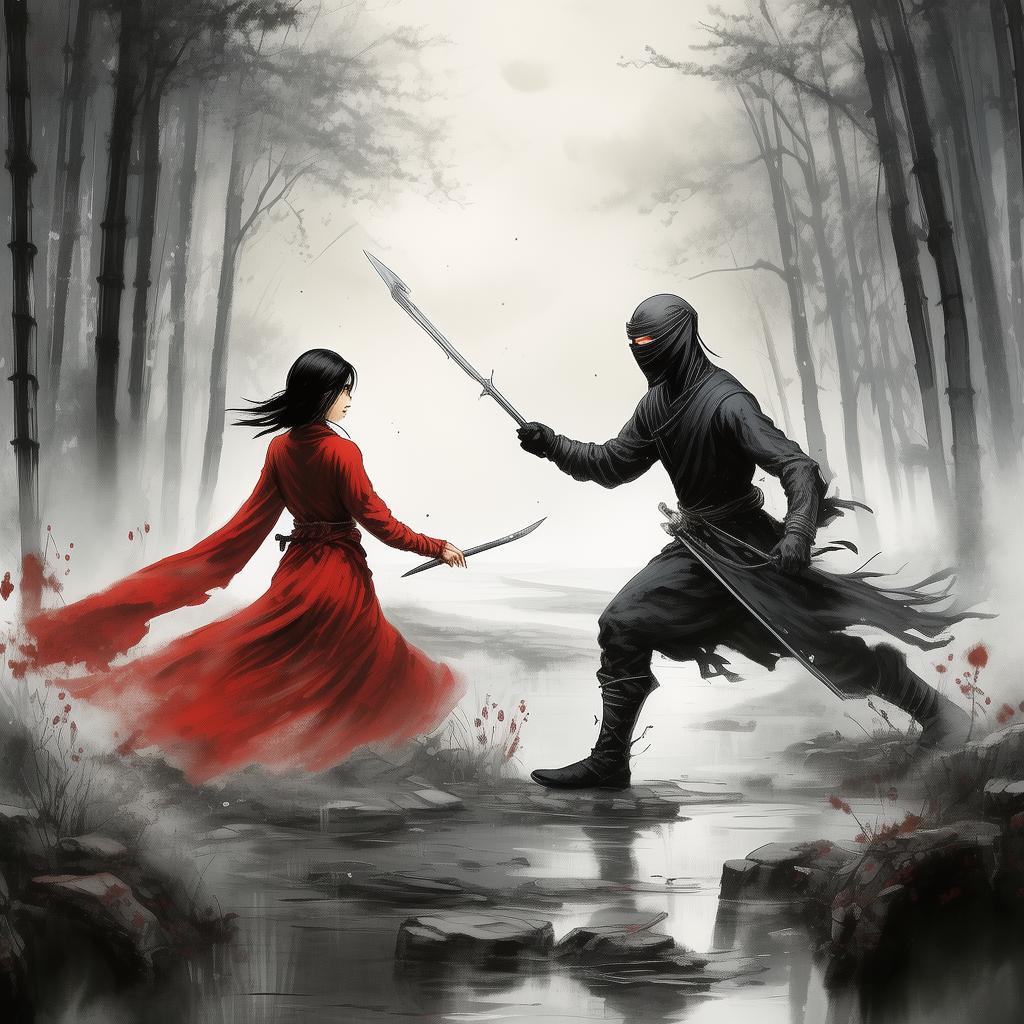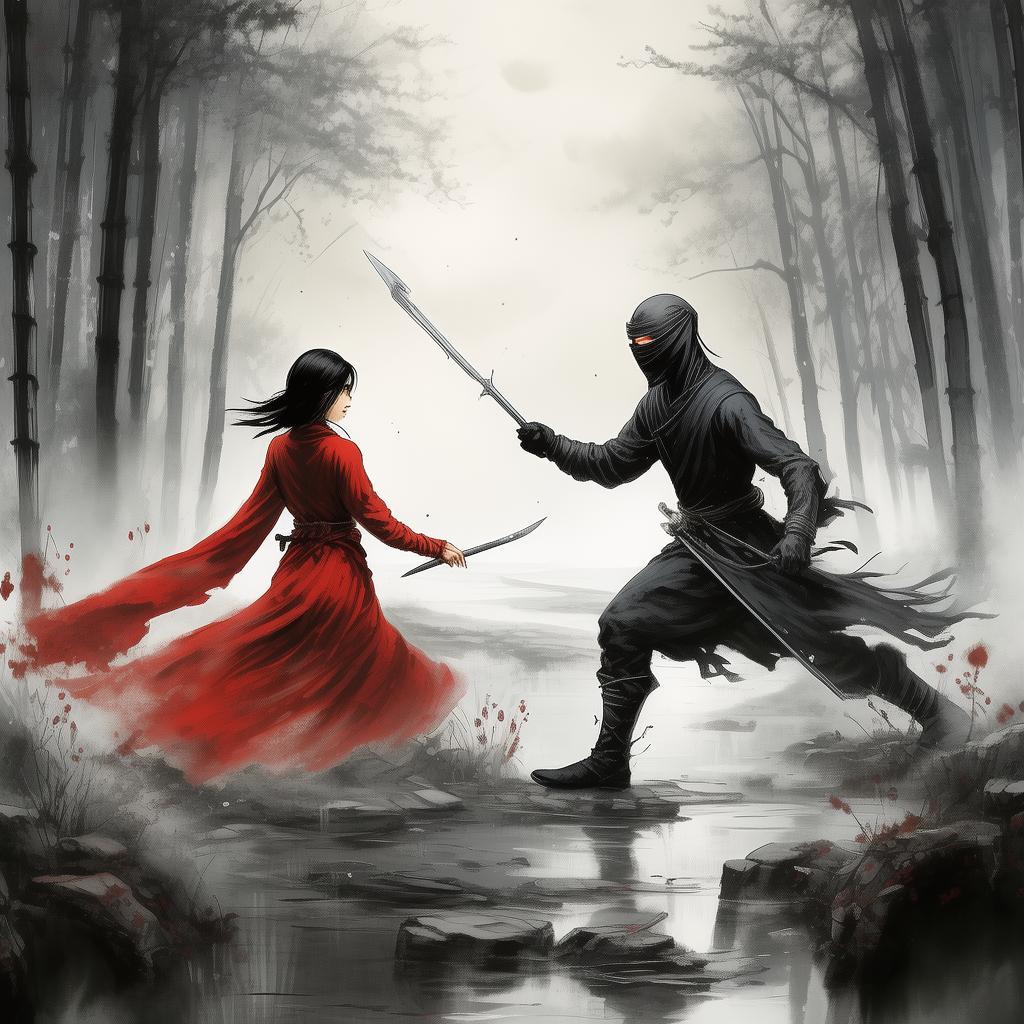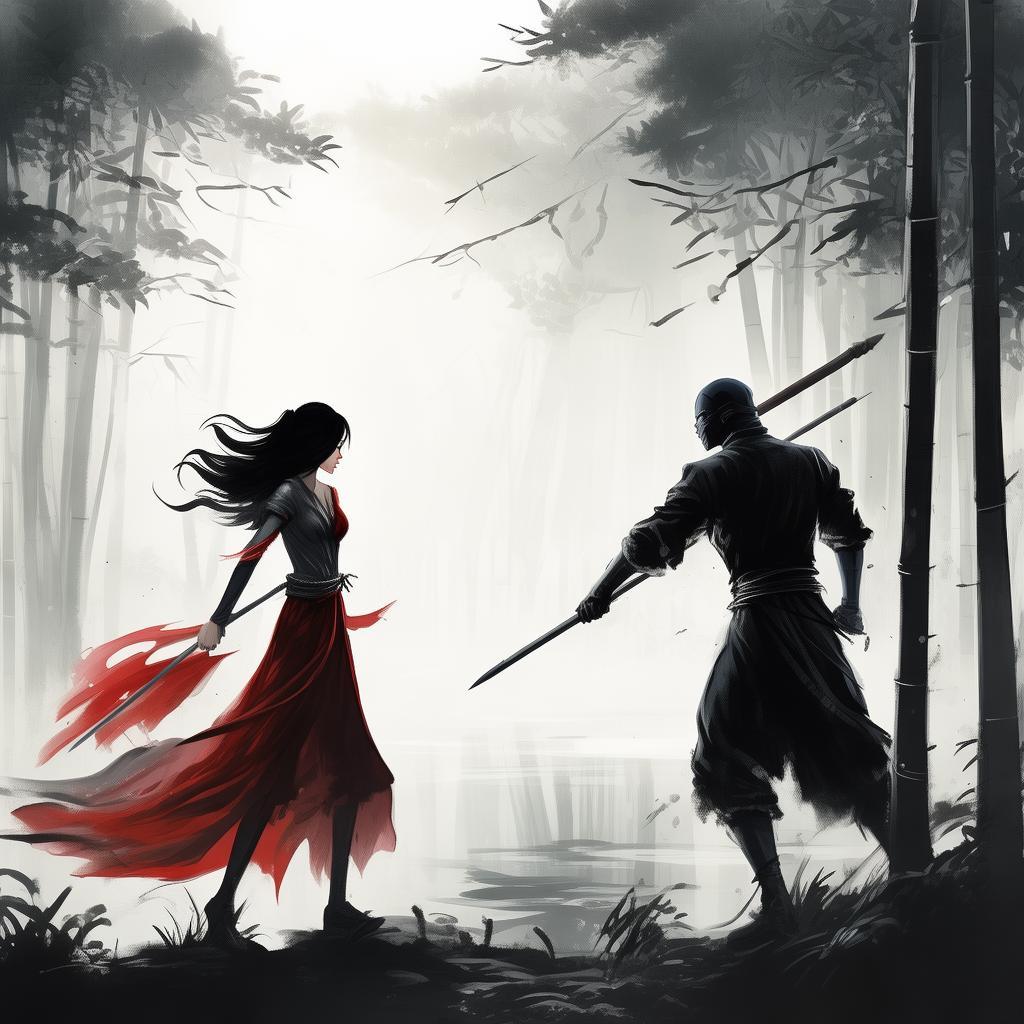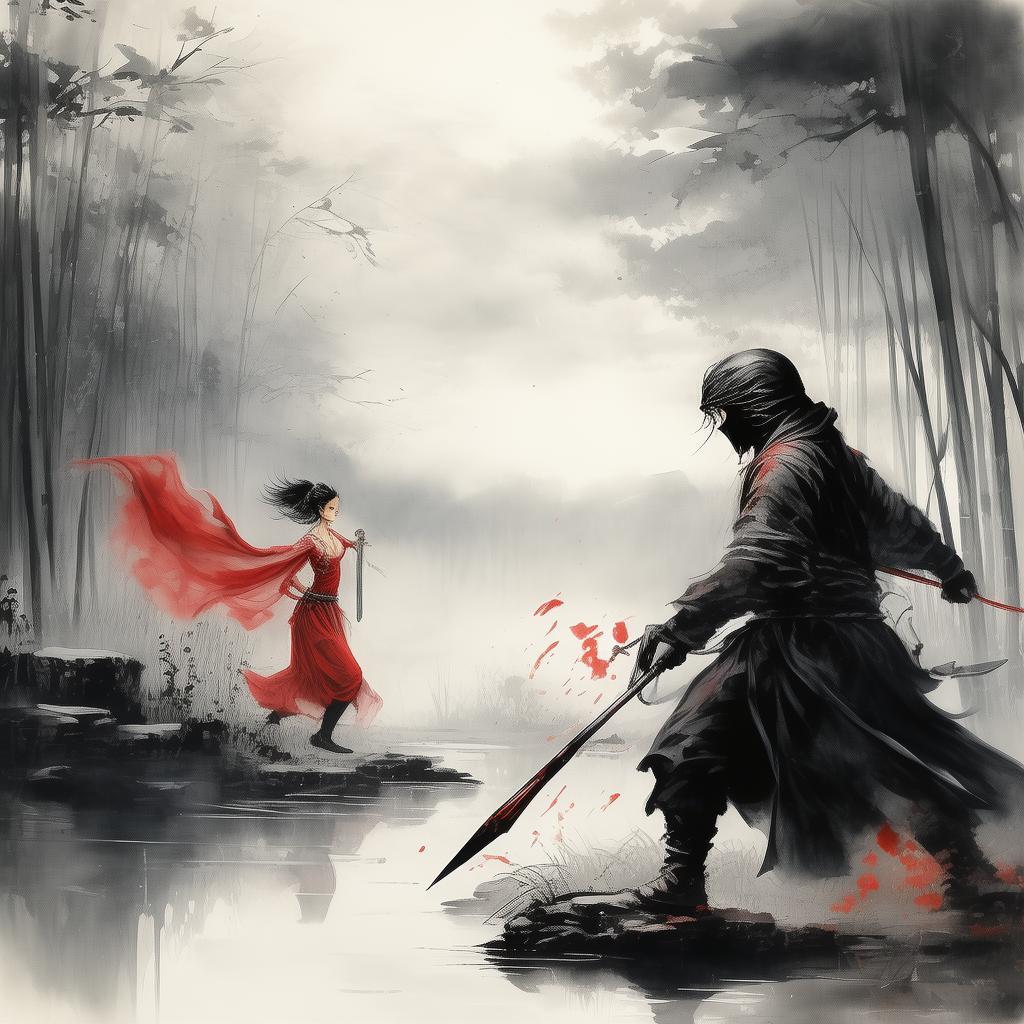The Philosophical Blade: A Martial Arts Reflection on the Mind
In the ancient land of Wudang, where the misty peaks rise against the sky and the whispers of the wind carry the secrets of ancient warriors, there lived a young martial artist named Li. His name was synonymous with the most exquisite and lethal of techniques, the Dragon's Tail, a style of swordplay that danced with the grace of a celestial being and the ferocity of a raged beast. Yet, beneath the surface of his prowess lay a mind that was as enigmatic as the paths he traversed through the mountains.
Li's journey began in the serene halls of the Wudang Monastery, where he was raised by the Abbot, a man whose eyes held the wisdom of ages and whose hands could heal the deepest wounds. The Abbot taught Li not only the physical art of martial arts but also the philosophical underpinnings that would guide him through the treacherous waters of his destiny.
The Philosophical Blade, a text that had been passed down through generations, was the cornerstone of Li's martial philosophy. It spoke of the mind as the master of the body, and of how one's thoughts could either elevate or destroy them. The book was a collection of tales and teachings that emphasized the importance of mindfulness, the unity of the mind and body, and the cultivation of inner peace amidst the chaos of the world.
One fateful day, as the sun dipped below the horizon, casting a golden glow over the Wudang Mountains, Li was called to the Abbot's chamber. There, he found a letter from a rival sect, the Iron Phoenix, challenging him to a duel. The challenge was not for the sake of glory or power, but for the sake of the peace that had long existed between the two sects. The Abbot, with a knowing smile, handed Li the Philosophical Blade and said, "This is your path, Li. The true warrior does not seek to defeat others, but to understand the nature of conflict itself."
The duel was set for the next dawn, and as the night wore on, Li sat by the window, his eyes reflecting the stars. He read the Philosophical Blade, his mind racing with thoughts of the duel and the lessons within the pages. He realized that the true battle was not with another man, but with the thoughts that clouded his mind. The Abbot's words echoed in his ears: "The sword is merely an extension of your will. To wield it effectively, you must first master your own mind."
The next morning, as the first light of dawn painted the sky with hues of pink and gold, Li stood on the field of battle. The Iron Phoenix warrior, a man whose face was as hard as the mountains and whose eyes were as cold as the winter winds, awaited him. The crowd fell silent, their breaths held in anticipation.
Li raised his sword, not in anger or aggression, but in a gesture of peace. "This duel is not about victory or defeat," he declared, his voice clear and resolute. "It is about understanding the nature of conflict and the role of the mind in shaping our actions."
The Iron Phoenix warrior's eyes narrowed, a hint of curiosity flickering in their depths. "Then let us begin," he said, stepping forward.
The battle was fierce, a dance of life and death, a clash of wills as much as of bodies. Li moved with the grace of a dragon, his sword a blur of silver that seemed to cut through the very fabric of reality. The Iron Phoenix warrior matched him step for step, his own style a whirlwind of force and fury.
As the battle raged on, Li's mind became a silent chamber, a place of clarity and calm. He felt the connection between his thoughts and his movements, the way his mind directed his body without the need for conscious thought. The Philosophical Blade's teachings had become a part of him, a guiding light that showed him the path to inner peace.

In the midst of the chaos, Li found himself in a position of peril. The Iron Phoenix warrior lunged, his sword aimed for Li's heart. In that moment, Li did not react with his body, but with his mind. He saw the attack as it came, not as a physical threat, but as a challenge to his resolve. With a calmness that surprised even himself, Li stepped back, avoiding the blow with a mere shift of his weight.
The Iron Phoenix warrior, taken aback by Li's sudden calmness, paused. "You are not like the others," he said, his voice tinged with respect. "You fight with the mind, not just the body."
Li nodded, his mind clear and focused. "The true battle is within," he replied. "The one who wins is not the one who strikes first, but the one who understands the nature of conflict."
The Iron Phoenix warrior, moved by Li's words and his own realization, sheathed his sword. "I withdraw," he said, bowing deeply. "You have shown me the true path of the warrior."
The crowd erupted in cheers, their admiration for Li's mastery of both the martial arts and the mind. The Abbot, who had been watching from the shadows, smiled warmly. "You have learned well, Li," he said. "The Philosophical Blade is not just a book, but a way of life."
Li returned to the monastery, his heart filled with a newfound sense of peace. He had not only won a duel, but also a battle within himself. The Philosophical Blade had shown him that the true power of the martial artist lay not in the strength of their muscles, but in the clarity of their mind.
From that day forward, Li's journey became one of constant self-reflection and growth. He traveled the land, teaching others the lessons he had learned, and spreading the philosophy of the Philosophical Blade. In every encounter, he reminded his students that the true warrior does not seek to defeat others, but to understand the nature of conflict and the role of the mind in shaping their destiny.
And so, the legend of Li, the martial artist who mastered the mind, spread far and wide, a testament to the power of philosophy and the unity of the mind and body.
✨ Original Statement ✨
All articles published on this website (including but not limited to text, images, videos, and other content) are original or authorized for reposting and are protected by relevant laws. Without the explicit written permission of this website, no individual or organization may copy, modify, repost, or use the content for commercial purposes.
If you need to quote or cooperate, please contact this site for authorization. We reserve the right to pursue legal responsibility for any unauthorized use.
Hereby declared.









